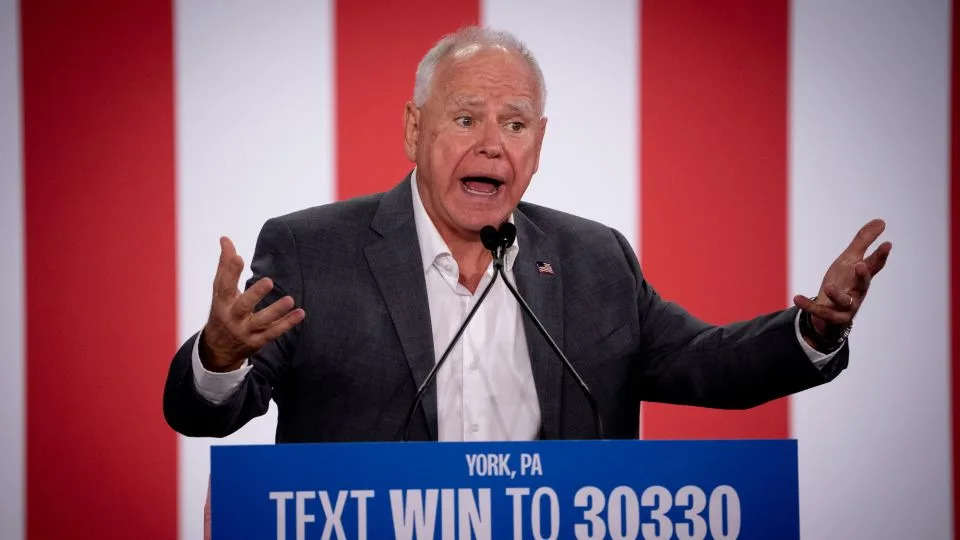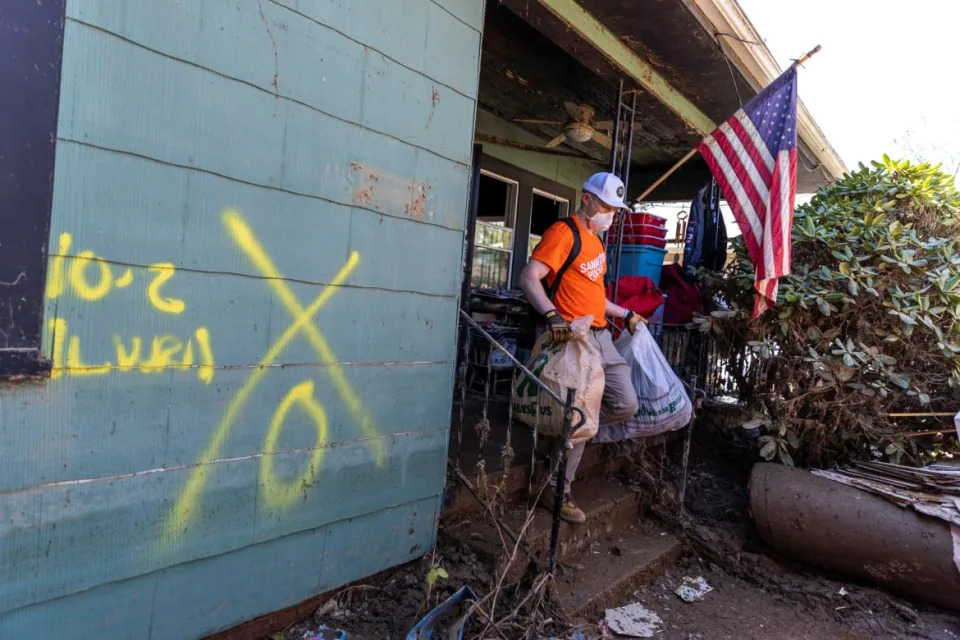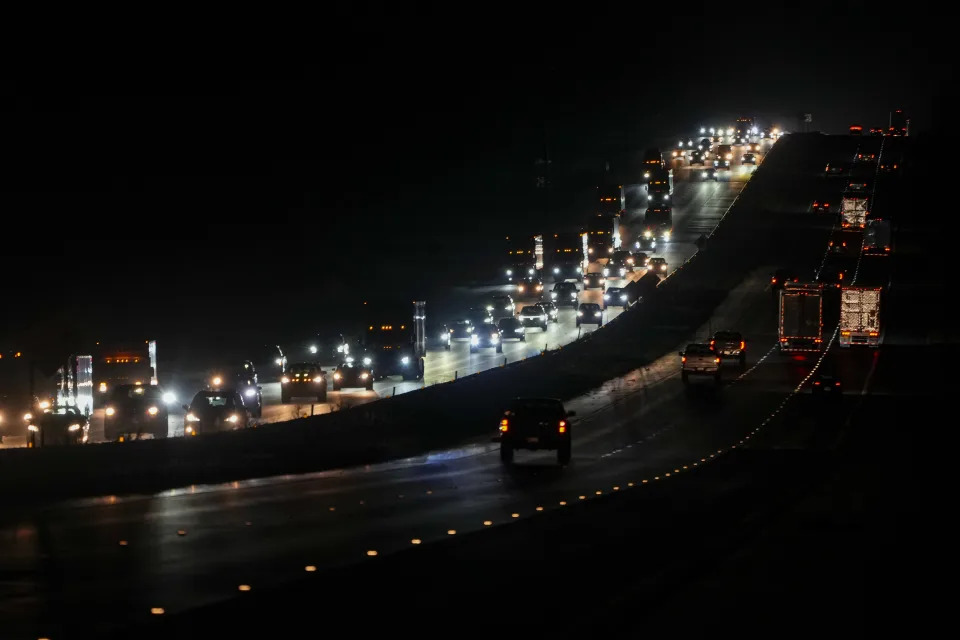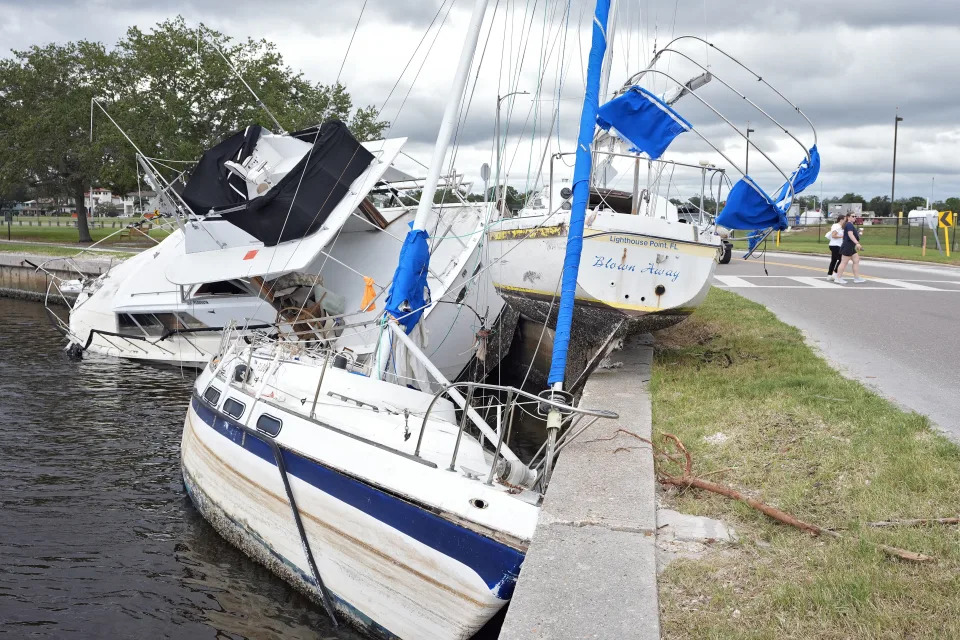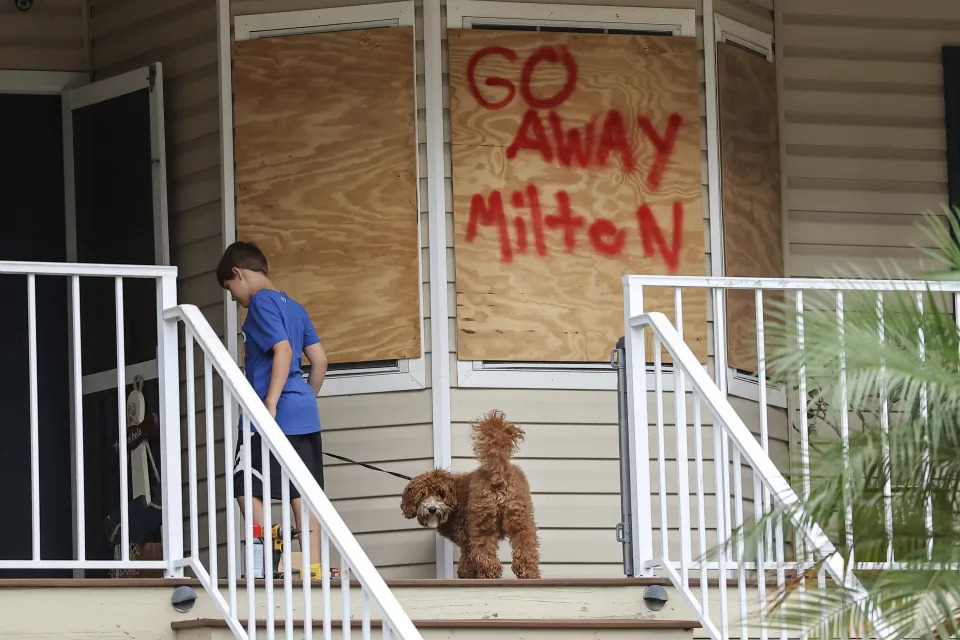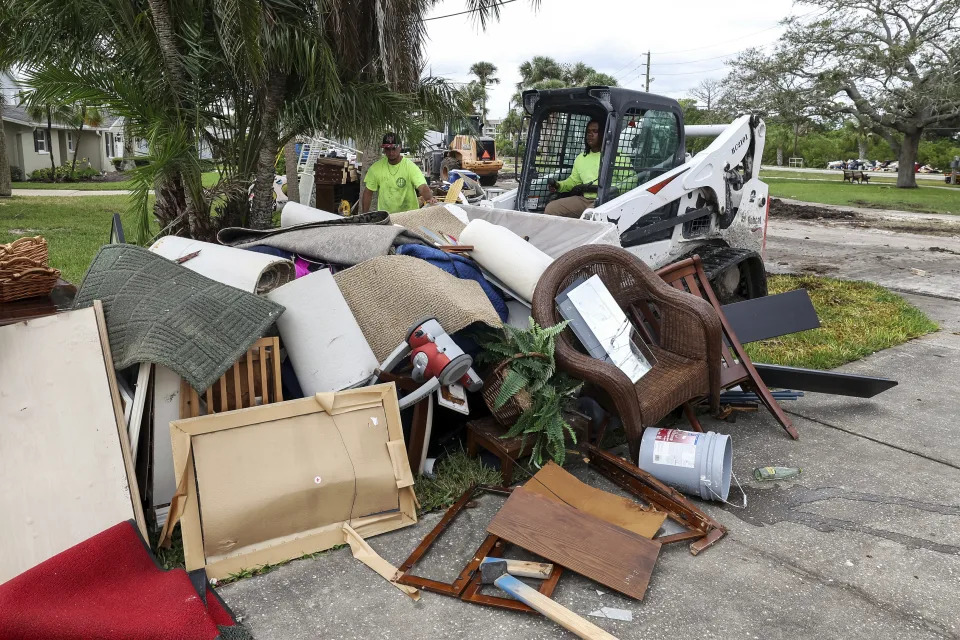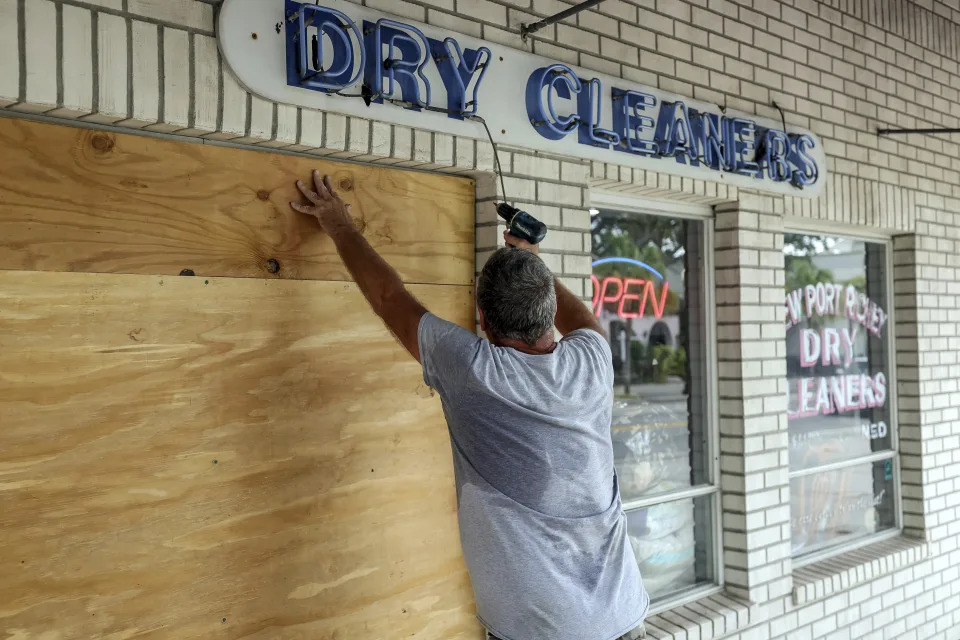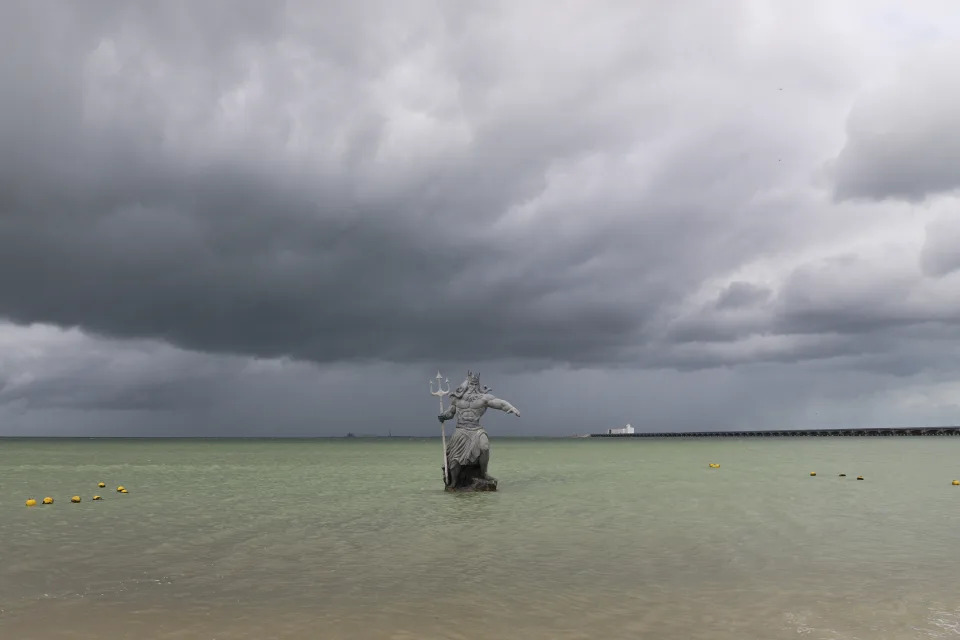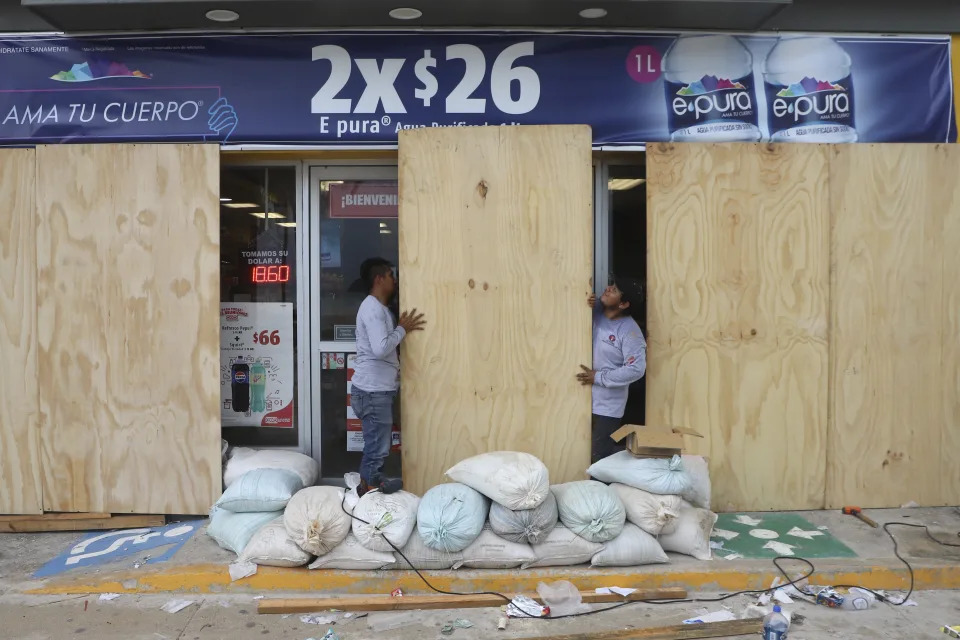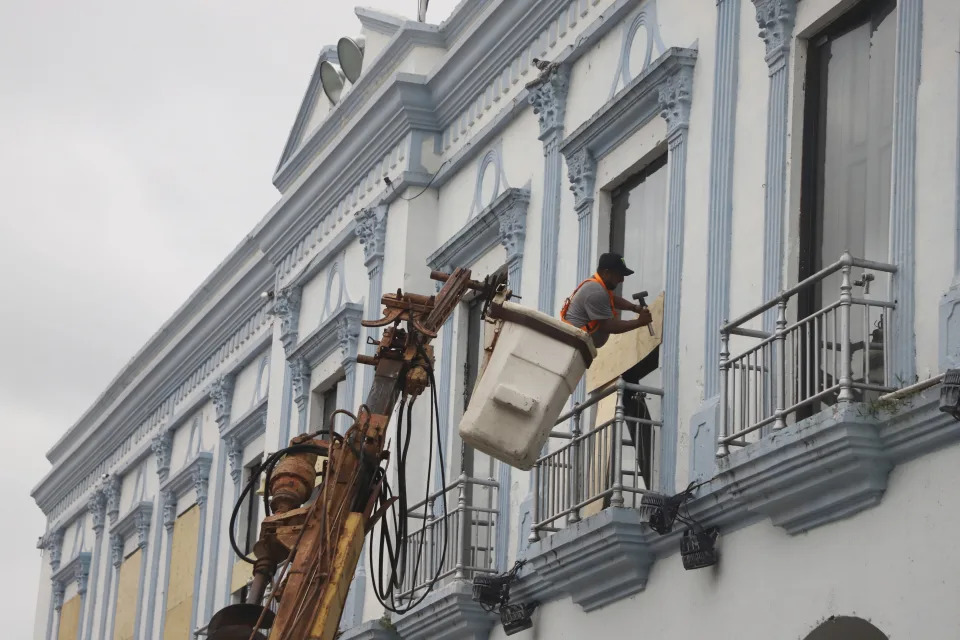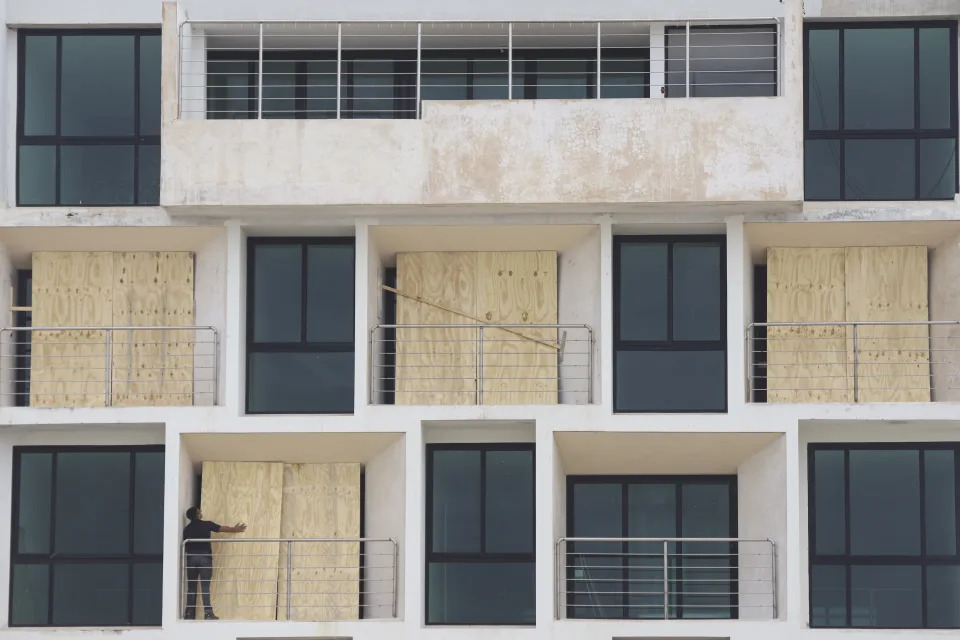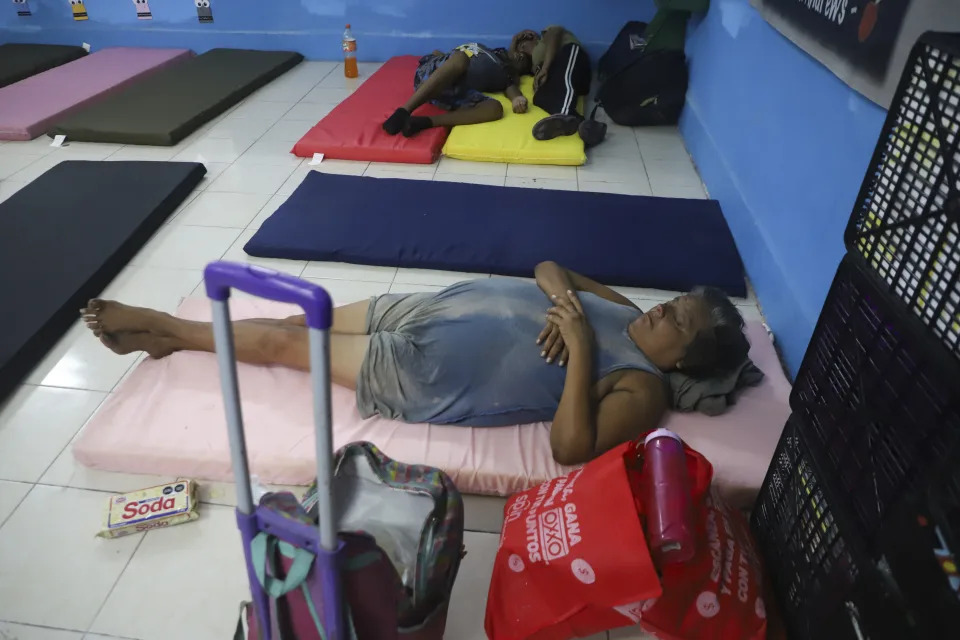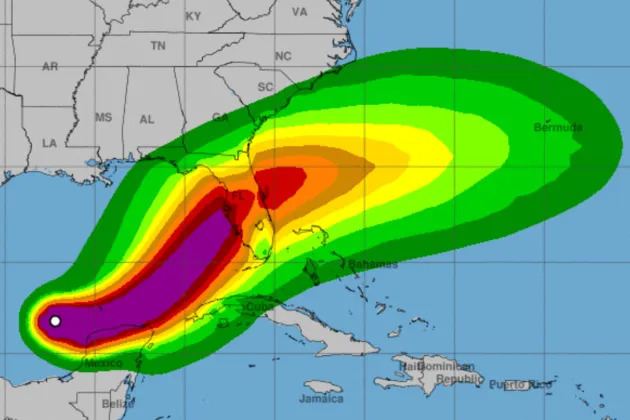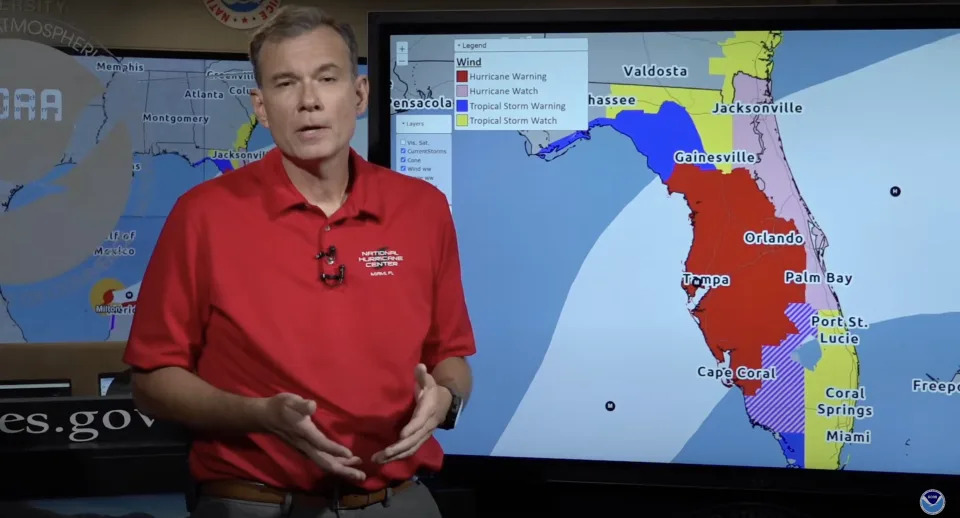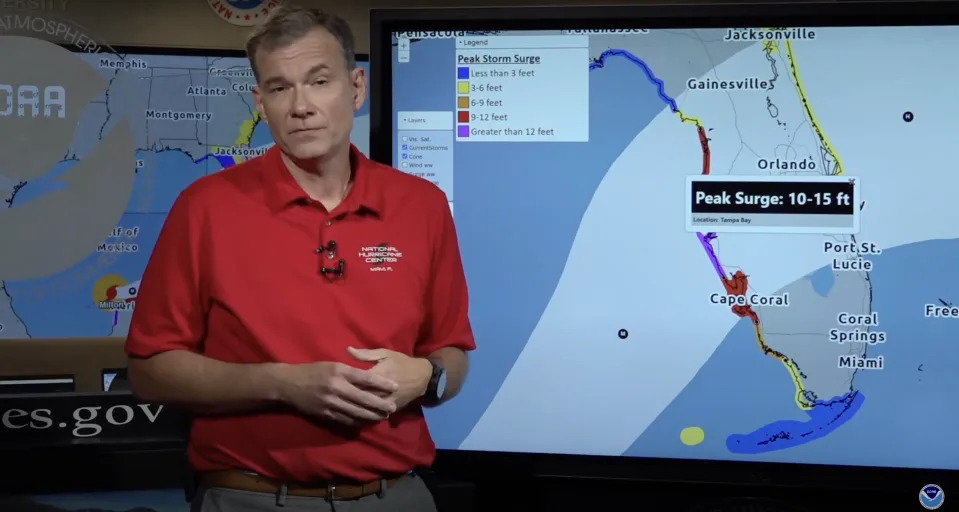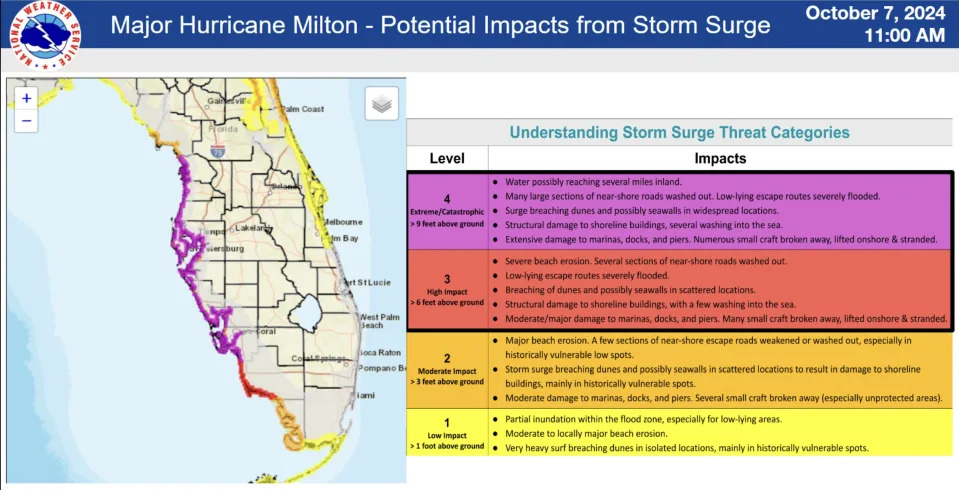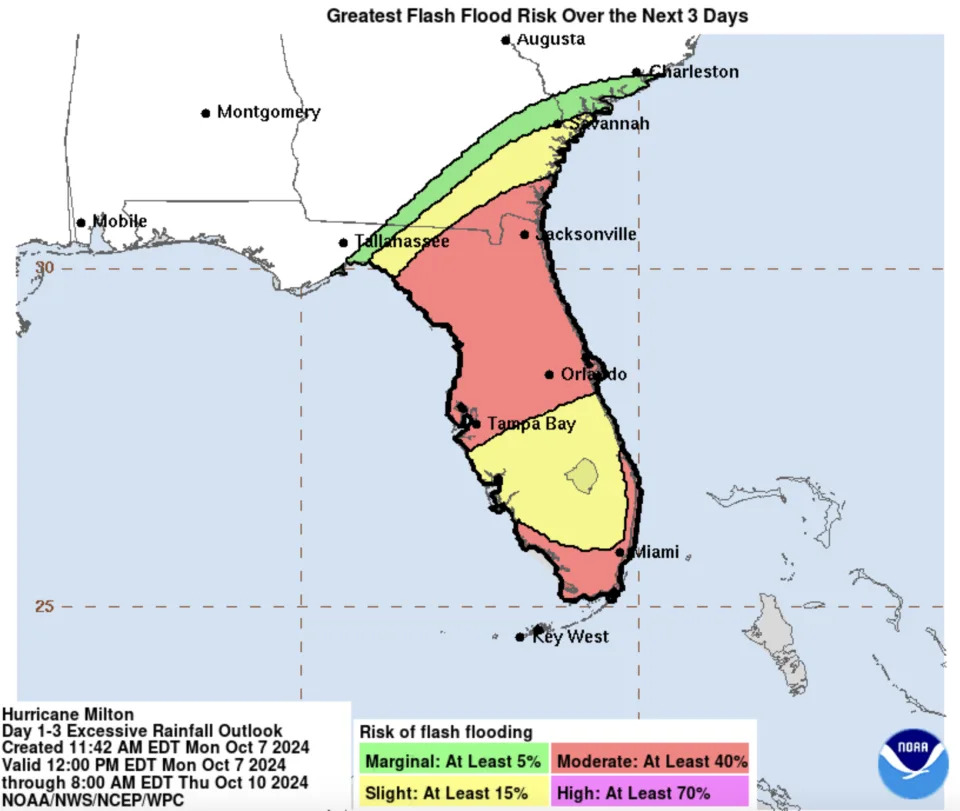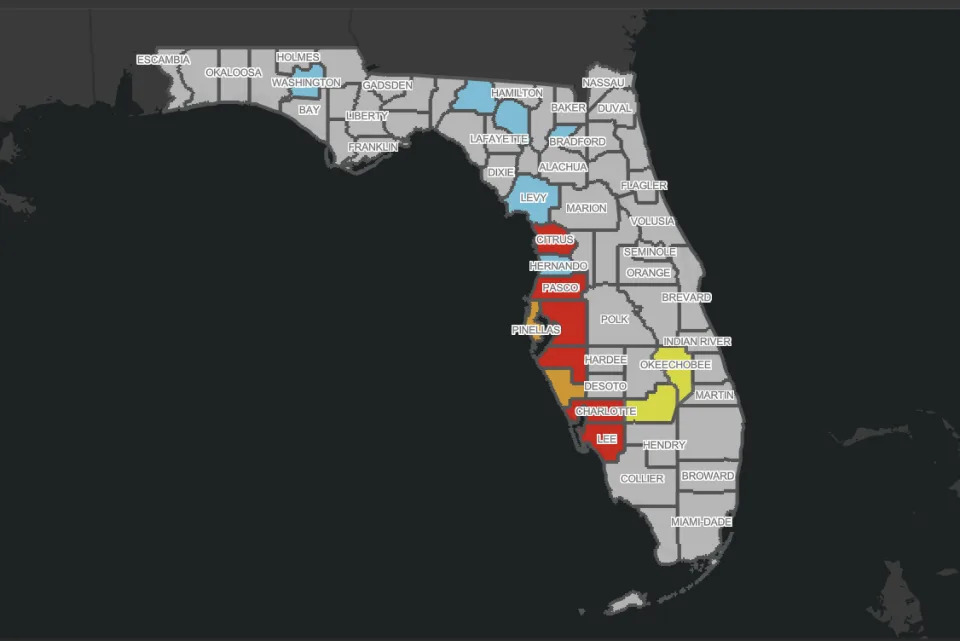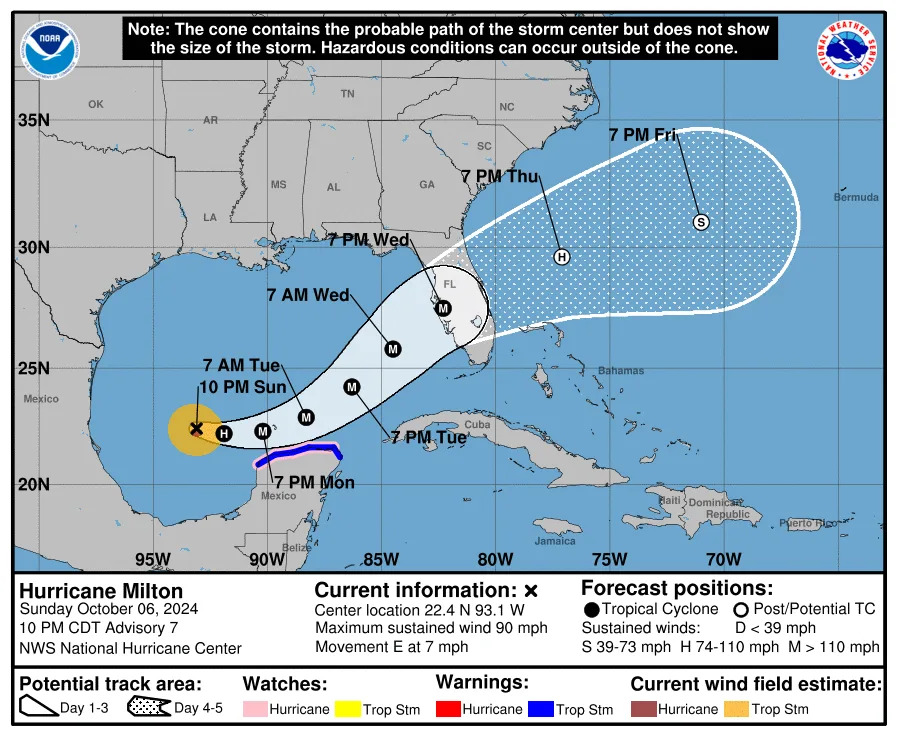JINTAMAS SAKSORNCHAI and EILEEN NG
Tue, October 8, 2024

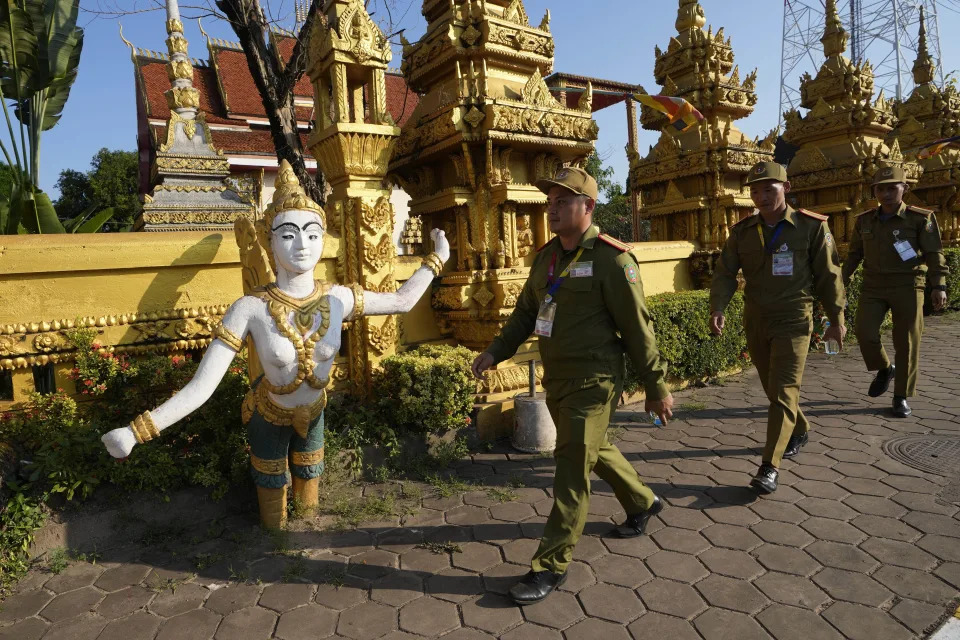


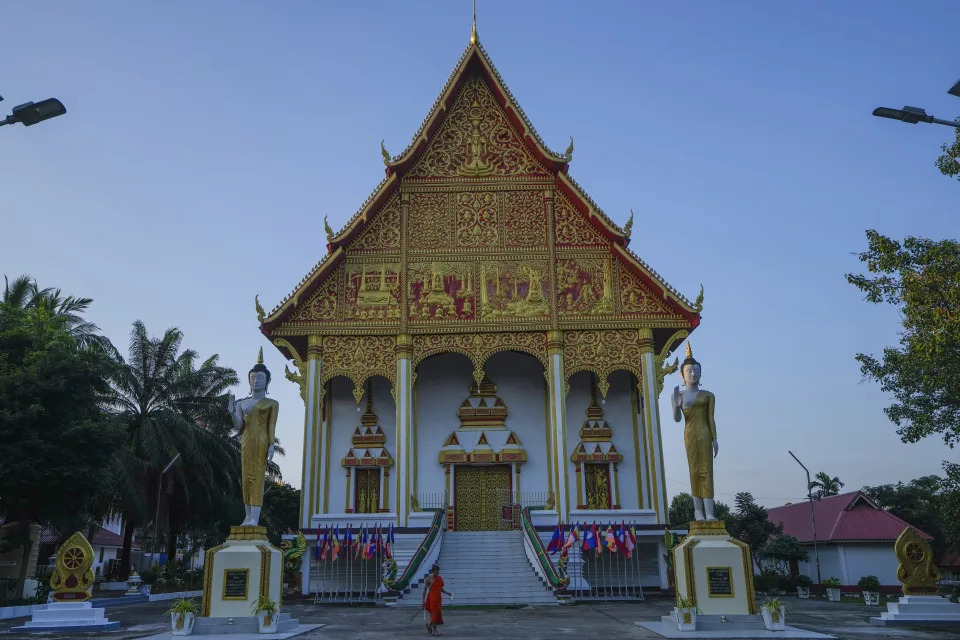
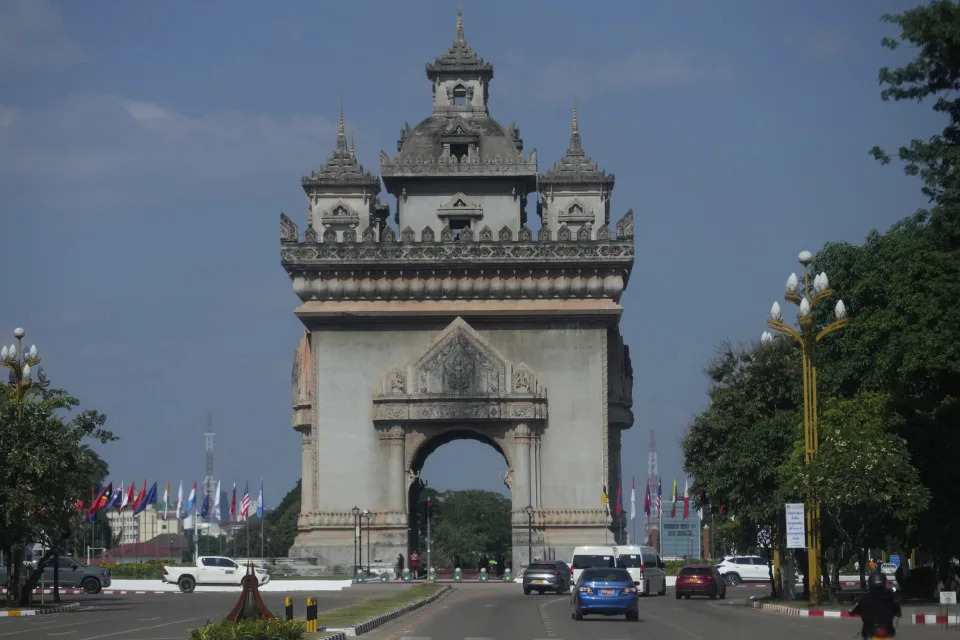
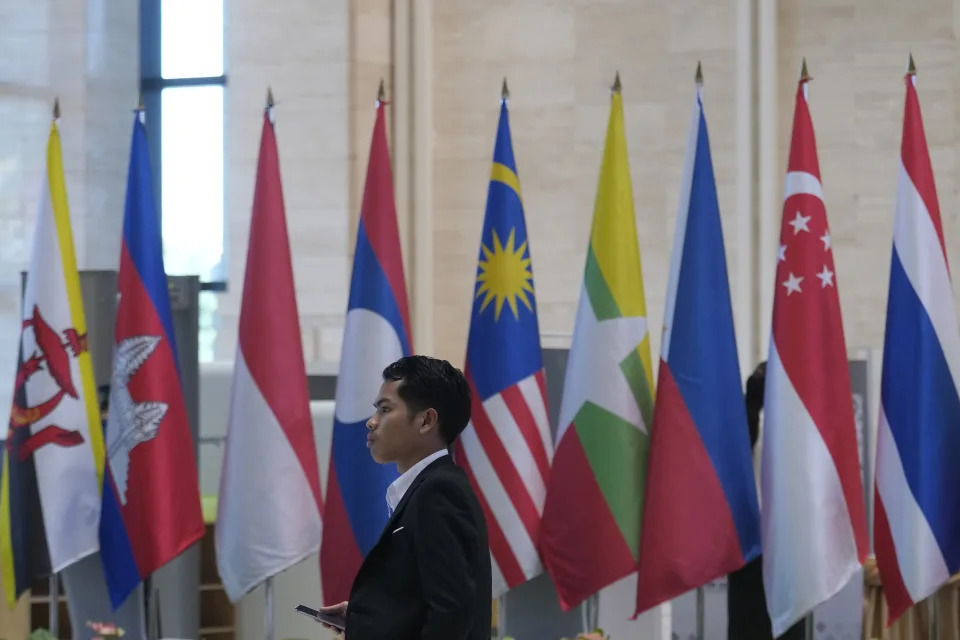
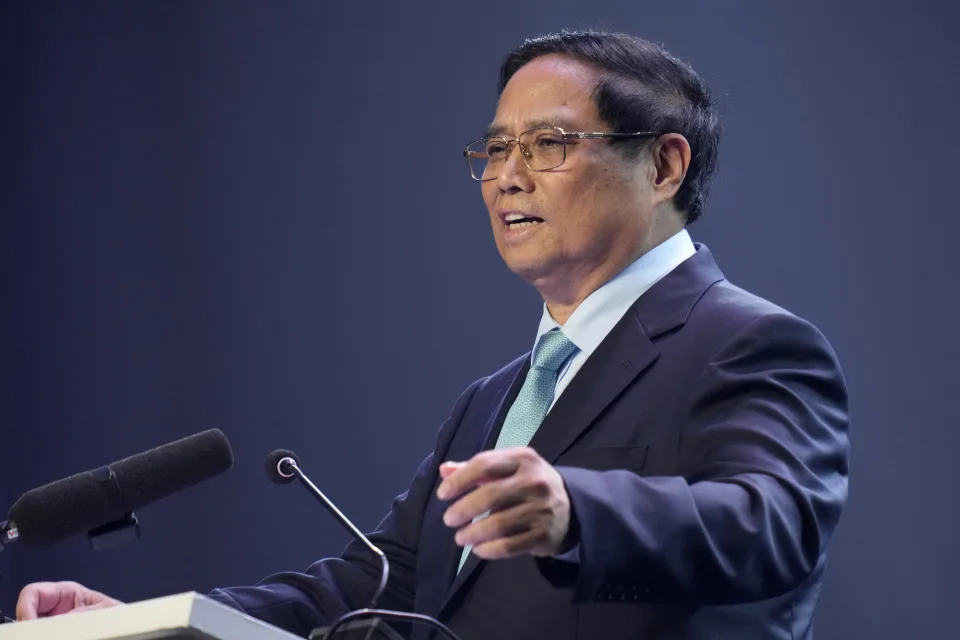
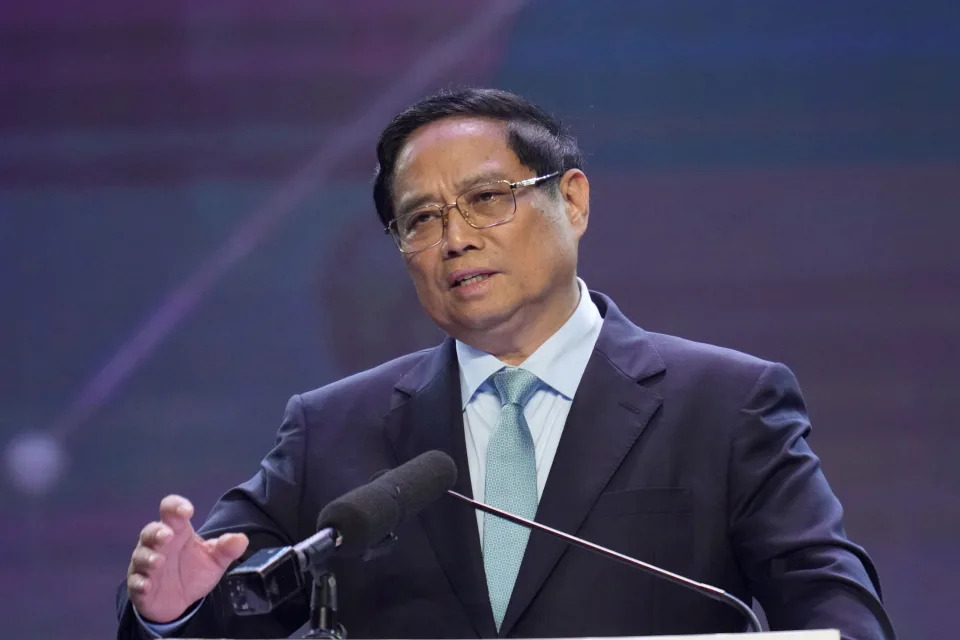
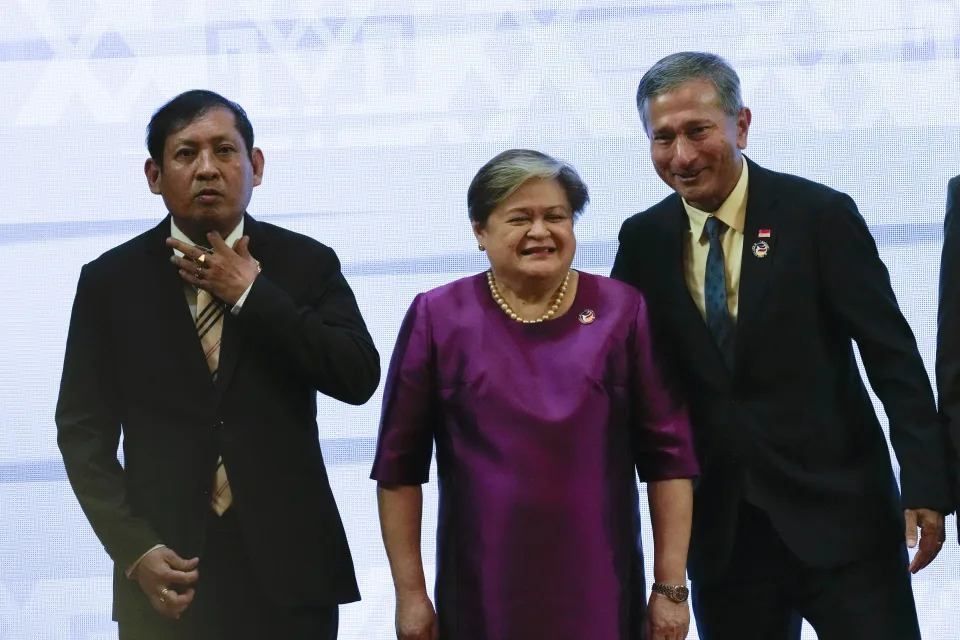
Laos ASEAN
An officer walks in front of a display for the meetings of the Association of Southeast Asian Nations (ASEAN) at the national convention center in Vientiane, Laos, Monday, Oct. 7, 2024. (AP Photo/Sakchai Lalit)
VIENTIANE, Laos (AP) — Southeast Asian leaders gathered in the capital of Laos on Wednesday for an annual regional forum that will focus on tackling the prolonged civil war in Myanmar and territorial tensions in the South China Sea.
The Association of Southeast Asian Nations summit will also be followed by meetings with global powers including China, the United States and Russia, which are contending for influence in the region.
The timing of the meetings in Vientiane makes it likely that talks will also touch on the escalation of violence in the Middle East, although Southeast Asia has faced only indirect fallout.
ASEAN's influence has historically been limited even among its own members, but the forum has often served as a platform for dialogues among superpowers looking to engage with the region.
The 10 member states of ASEAN — Indonesia, Thailand, Singapore, Philippines, Vietnam, Malaysia, Myanmar, Cambodia, Brunei and Laos — will also hold talks with their dialogue partners from elsewhere in the region including Japan, South Korea, India and Australia on topics ranging from the economy, to climate change and energy.
This year's summit will be the first for several new national leaders.
Thailand's Paetongtarn Shinawatra, who took the premiership in August, emerged the bloc's youngest leader at 38. Singapore's Prime Minister Lawrence Wong will represent the country after he took over from Lee Hsien Loong, who stepped down in May after 20 years.
Vietnam also has a new leader after President To Lam took office in August, but the country will be represented by its prime minister Pham Minh Chinh.
President Joko Widodo of Indonesia, ASEAN’s biggest member, is skipping the forum as his successor Prabowo Subianto prepares to take office later this month, sending Vice President Ma’ruf Amin in his stead.
It will also be the first overseas trip for Japan’s new prime minister Shigeru Ishiba, who was confirmed just last week.
Thailand’s Paetongtarn said Monday the Myanmar crisis is an “extremely important issue” that will be raised during the meetings.
The violence and humanitarian crisis in Myanmar has rapidly worsened since the army ousted the elected government of Aung San Suu Kyi in February 2021 and suppressed widespread nonviolent protests that sought a return to democratic rule.
Myanmar’s junta has agreed to an ASEAN peace plan that calls for ceasefire and mediation, but has continued battling pro-democracy guerillas and ethnic rebels in a war that has killed close to 6,000 people.
Myanmar is expected to send Foreign Ministry permanent secretary Aung Kyaw Moe to the summit, its first high-level representative at the summit in three years, after ASEAN barred it from sending political representatives in late 2021.
Allowing a senior diplomat from Myanmar to join the meetings “will be perceived as ASEAN is compromising, confirming the concern that ASEAN is experiencing fatigue in dealing with the crisis,” said Lina Alexandra, senior researcher at Indonesia’s Centre for Strategic and International Studies. That means the chances for any significant breakthrough on the crisis remain slim, she said.
Much discussion is also likely to focus on the maritime territorial disputes between ASEAN member states and China in the South China Sea, one of the world’s most crucial waterways for trade.
Vietnam, the Philippines, Malaysia and Brunei all have overlapping claims with China, which claims sovereignty over virtually all of the South China Sea and has become increasingly aggressive in attempts to enforce them. Indonesia has also expressed concern about what it sees as Beijing’s encroachment on its exclusive economic zone.
Tensions between the Philippines and China have escalated this year, with Chinese forces using powerful water cannons and dangerous blocking maneuvers to prevent food and other supplies from reaching Filipino navy personnel involved with staking a claim on a tiny atoll.
Despite a deal in July to end confrontations, tensions flared again in August after vessels from the two counties collided, with each side accusing each other of deliberately causing the collision. The Philippines, a longtime U.S. ally, has been critical of other ASEAN countries for not doing more to get China to back away from its increasingly assertive approach.
Last week, Vietnam charged that Chinese forces assaulted 10 of its fishermen with iron bars, damaged their gear and stole their catch off the disputed Paracels Islands, and calling it a serious violation of Vietnam’s sovereignty.
While members are likely to focus on the disputes at the forum, there's little chance of clear outcomes as those who are not in direct conflict with China will likely prioritize ties with Beijing, said Muhammad Faizal Abdul Rahman, research fellow at Singapore’s S. Rajaratnam School of International Studies.
“It is the preference for conflict avoidance while getting geostrategic benefits where possible,” he said. “In reality, national interests matter more than regional interests."
___
Follow AP's Asia-Pacific coverage at https://apnews.com/hub/asia-pacific
Myanmar and South China Sea to test ASEAN relevance in upcoming summit
Panu Wongcha-um
Mon, October 7, 2024
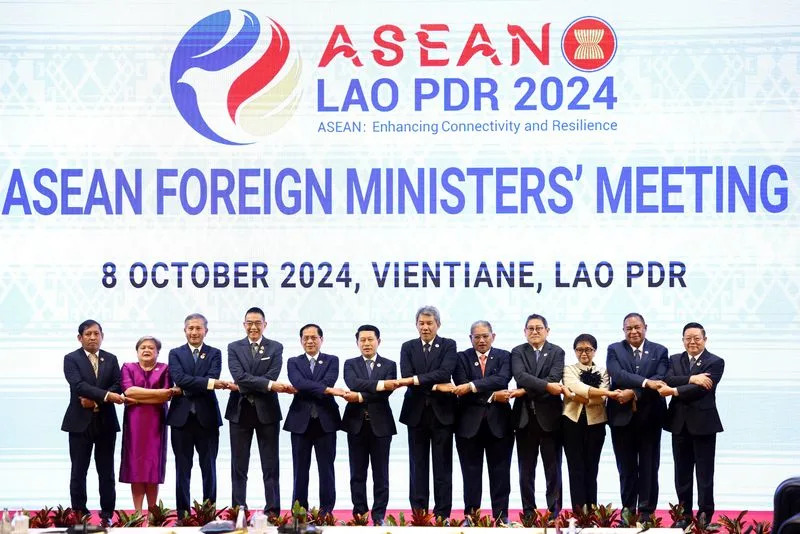
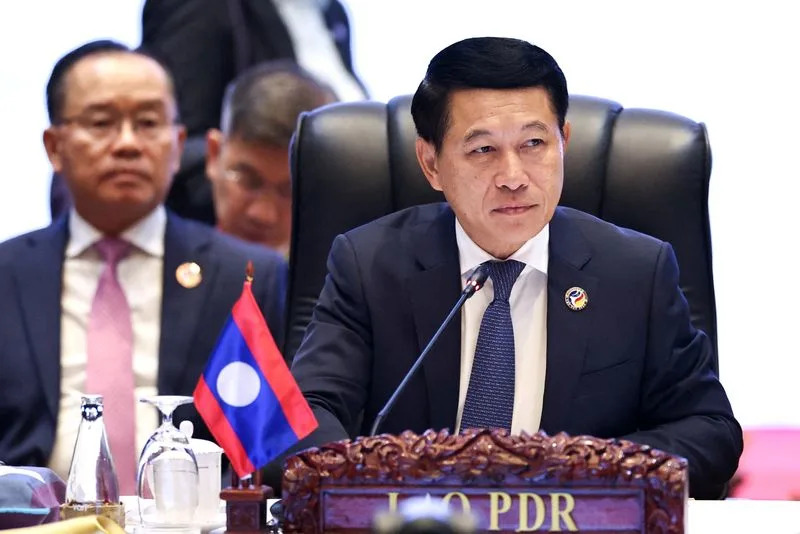
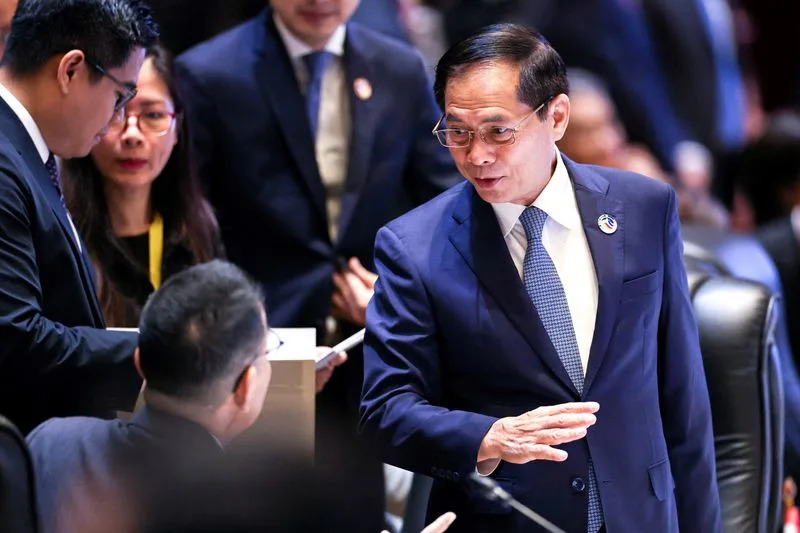
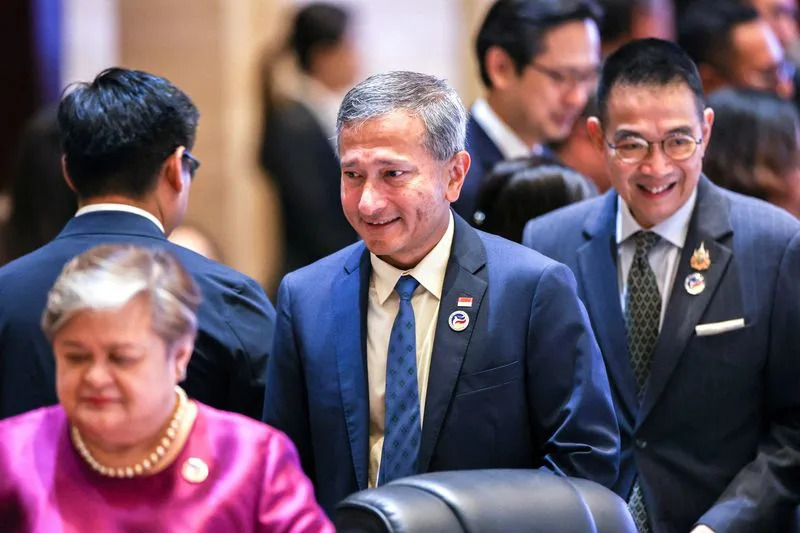
Myanmar and South China Sea to test ASEAN relevance in upcoming summit
ASEAN Foreign Ministers' Meeting (AMM) in Vientiane, Laos
By Panu Wongcha-um
VIENTIANE, Laos (Reuters) - Southeast Asian leaders will meet in Laos this week as Myanmar's civil war and mounting tensions in the South China Sea risk corroding the ASEAN grouping's central role in the region.
The 10-member Association of Southeast Asian Nations (ASEAN) has, since it was founded in 1967, created complex political structures and processes that have largely enabled peaceful cooperation within the region of over 685 million people.
But its inability to address difficult issues in a timely way may reflect a deeper differences emerging within the regional grouping, said former Indonesian Foreign Minister Marty Natalegawa.
"Both the South China Sea issue, as well as Myanmar, constitute litmus tests for ASEAN's relevance," Natalegawa told Reuters.
"My main concern...is that the sense of ASEAN cohesion and sense of common purpose has been fraying somewhat in recent years."
Known as the "Five Point Consensus", the ASEAN-led peace effort for Myanmar has made scant progress since its unveiling in April 2021, just months after the country's military staged a coup and unseated the elected government.
Instead, violence has spiraled, with the emergence of an armed resistance movement that has loosely allied with several ethnic minority rebel groups to hammer the military on multiple fronts.
Under ASEAN chair Laos, the bloc's approach has somewhat shifted from previous chair Indonesia's largely unsuccessful approach by enlarging the peace process to include Myanmar's other neighbours such as China and India, said Dulyapak Preecharush, a Southeast Asian studies scholar at Thailand's Thammasat University.
"It creates more space and less pressure for the Myanmar military," said Dulyapak.
Still, the Myanmar junta has refused to engage in talks with rivals, calling them terrorists bent on destroying the country, while ASEAN continues to bar the generals from its summits over their failure to comply with the peace plan they had initially agreed to.
On Monday, Thailand's Prime Minister Paetongtarn Shinawatra said she would work with Malaysia to use diplomatic means to resolve the conflict, underscoring what may be a renewed effort by the bloc.
CODE OF CONDUCT
The meeting in Laos will be followed by two days of summits with leaders and top diplomats from other countries, including the United States, Japan, South Korea, China and Russia.
Of concern to many of them are escalating tensions in the South China Sea between China and the Philippines, and more recently, Vietnam.
That has renewed attention on ASEAN's protracted negotiations with Beijing towards creating a code of conduct for the vital waterway, a process in motion since 2017.
China claims almost the entire South China Sea as its territory and has deployed an armada of coast guard deep into the exclusive economic zones of ASEAN members the Philippines, Vietnam, Indonesia, Malaysia and Brunei.
While some ASEAN countries are hopeful the code can be concluded in a few years, prospects for a legally binding text remain distant, according to many analysts and diplomats.
"Negotiations on the code of conduct continue at a snail's pace," former Thai Foreign Minister Kantathi Suphamongkhon told Reuters.
"Some parties to the negotiation are now hinting that the code of conduct should also not be legally binding," he said adding, "this would be unfortunate."
Ties between U.S. defence treaty ally the Philippines and China have been strained by confrontations between vessels near disputed features, triggering regional concerns of an escalation.
Last week, Vietnam also protested what it called a Chinese attack on its fishermen near disputed, Chinese-occupied islands.
China maintains its responses have been appropriate.
(Reporting by Panu Wongcha-um; Editing by Devjyot Ghoshal, Martin Petty and Lincoln Feast.)
SE Asian summit seeks progress on Myanmar civil war
Martin Abbugao and Thanaporn Promyamyai
Tue, October 8, 2024
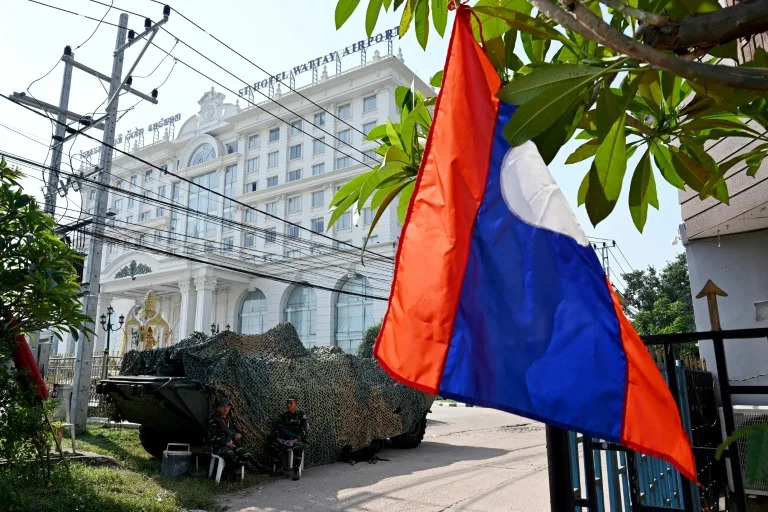
Southeast Asian leaders are meeting in the Laos capital Vientiane for the ASEAN summit (TANG CHHIN Sothy) (TANG CHHIN Sothy/AFP/AFP)
Southeast Asian leaders met for talks with a Myanmar junta representative at a regional summit Wednesday as they try to kickstart faltering diplomatic efforts to broker an end to the country's civil war.
The disputed South China Sea will also be on the agenda at the Association of Southeast Asian Nations (ASEAN) gathering, after months of violent clashes between Chinese vessels and Philippine and Vietnamese fishermen.
ASEAN has tried to no avail for three years to find a negotiated solution to the Myanmar crisis, which has left thousands dead and forced millions to flee their homes.
The bloc barred junta leaders from its summits in the wake of their February 2021 coup and the generals refused invitations to send a "non-political" representative instead.
But the junta has backed down and sent a senior foreign ministry official to the three-day meet in Laos -- its first representation at a top-level gathering in three and a half years.
The U-turn comes two weeks after the military issued an unprecedented invitation to its enemies for talks aimed at ending the conflict, following a series of battlefield defeats.
Weeks after it ousted Aung San Suu Kyi's elected government, the junta agreed to a "five point consensus" plan with ASEAN to restore peace, but then ignored it and pushed ahead with a bloody crackdown on dissent and opposition to its rule.
- Myanmar 'has to listen' -
Malaysian Foreign Minister Mohamad Hasan, whose country takes over the ASEAN chair after the summit, said it was time for Myanmar to cooperate.
"Myanmar also has to listen to ASEAN. They have to abide by the ASEAN charter because it's part of ASEAN," he told reporters.
Officials hope that the leaders' first face-to-face talks in three and a half years with a junta representative -- foreign ministry permanent secretary Aung Kyaw Moe -- could open the way to a breakthrough.
Aung Kyaw Moe joined a meeting of ASEAN foreign ministers on Tuesday where he asked for "understanding as Myanmar tried to bring a peaceful solution", Thai foreign ministry spokesman Nikorndej Balankura told reporters.
But Daniel Kritenbrink, the top US diplomat for East Asia, voiced doubts at the idea the junta was moderating.
He said that Secretary of State Antony Blinken, who is representing the United States at the ASEAN meeting, would press for the junta to take steps such as reducing violence, releasing political prisoners, and engaging with the opposition.
"Unfortunately, we have seen virtually zero progress on any of those priorities," Kritenbrink said.
Mustafa Izzuddin, international affairs analyst at Solaris Strategies Singapore, said the Myanmar crisis would "define the future of ASEAN as to its relevance in navigating a shifting geopolitical landscape."
"The longer the Myanmar crisis remains unresolved, the greater the risk of ASEAN outliving its usefulness in resolving conflicts within the Southeast Asian region," he told AFP.
Groups fighting against the junta are also unimpressed by the diplomatic efforts.
Padoh Saw Taw Nee, a spokesman for the Karen National Union (KNU), which has been battling the military for decades along the border with Thailand, said three years of ASEAN-led peace talks had only shown the bloc's "dysfunctional mechanism".
"ASEAN really needs to coordinate with the two big powerful countries, China and the US. Without the two big power's green light ASEAN couldn't get anywhere."
- South China Sea -
The Myanmar crisis has dominated every high-level meeting since the coup but the bloc has been divided, with Indonesia, Malaysia and the Philippines leading calls for tougher action against the generals.
Philippine President Ferdinand Marcos is also expected to push discussions on the South China Sea, where Chinese coast guard and other vessels have rammed, deployed water cannons, and blocked Philippine government vessels in recent months.
This month Vietnam condemned China's "brutal behaviour" after 10 of its fishermen were beaten with iron bars and robbed of thousands of dollars' worth of fish and equipment.
Beijing claims almost the entirety of the South China Sea, a waterway of immense strategic importance through which trillions of dollars in trade transits every year.
Four ASEAN members -- the Philippines, Vietnam, Indonesia and Brunei -- have competing claims to various small islands and reefs.
Chinese Premier Li Qiang arrives on Wednesday, a day before holding talks with the bloc's leaders and joining an "ASEAN Plus Three" summit with new Japanese Prime Minister Shigeru Ishiba and President Yoon Suk Yeol of South Korea.
Indian Prime Minister Narendra Modi will also hold talks with ASEAN on Thursday.
Wars in the Middle East and Ukraine are expected to feature in discussions.
bur-pdw/rsc
Blinken hopes to strengthen U.S.-East Asian ties during Laos summits
Tue, October 8, 2024

Secretary of State Antony Blinken departs the UN General Assembly's 79th session at the United Nations Headquarters in New York City on Sept. 23 and is in Laos to attend summits with Indo-Pacific and Southeast Asian leaders Tuesday through Friday. Photo by Peter Foley/UPI
Oct. 8 (UPI) -- Secretary of State Antony Blinken will seek to strengthen U.S. ties in East Asia during a pair of summits with leaders from the Indo-Pacific and Southeast Asian regions this week.
Blinken is visiting Vientiane in the Lao People's Democratic Republic Tuesday through Friday to participate in the East Asia Summit and the U.S.-Association of Southeast Asian Nations summit.
"We sincerely appreciate the Lao PDR for its excellent work this year in hosting the many ASEAN meetings," Daniel Kritenbrink, Assistant Secretary for East Asian and Pacific Affairs, said during a teleconference Tuesday afternoon.
"We remain committed to advancing the U.S.-LAO PDR Comprehensive Partnership and to developing our economic and people-to-people ties to support greater prosperity for the people of Laos," Kritenbrink said.
Blinken's mission is to emphasize the benefits of the U.S.-ASEAN Comprehensive Strategic Partnership for the 1 billion people represented by the participating nations.
Economic growth, climate change, health security, maritime security and the digital economy are among the many topics Blinken and the representatives of ASEAN nation's will discuss during the events in Laos, Kritenbrink said.
Blinken also will discuss geopolitical issues, including a continuing crisis in Burma, enforcing international law in the South China Sea and Russia's war against Ukraine.
"ASEAN is at the heart of the U.S. Indo-Pacific strategy," Kritenbrink said. "We are committed to ASEAN's centrality and the ASEAN Outlook on the Indo-Pacific."
The United States is the largest source of direct foreign investment in ASEAN nation's and their respective economies, Kritenbrink said.
He said U.S. businesses invested $500 billion in trade in ASEAN nations in 2023, which generated hundreds of thousands of jobs throughout the United States and a million jobs throughout Southeast Asia.
Southeast Asian nations also send 50,000 students to study in U.S. universities every year.
Blinken to discuss Myanmar, South China Sea and Ukraine at Asia summits Laos
Reuters
Updated Tue, October 8, 2024
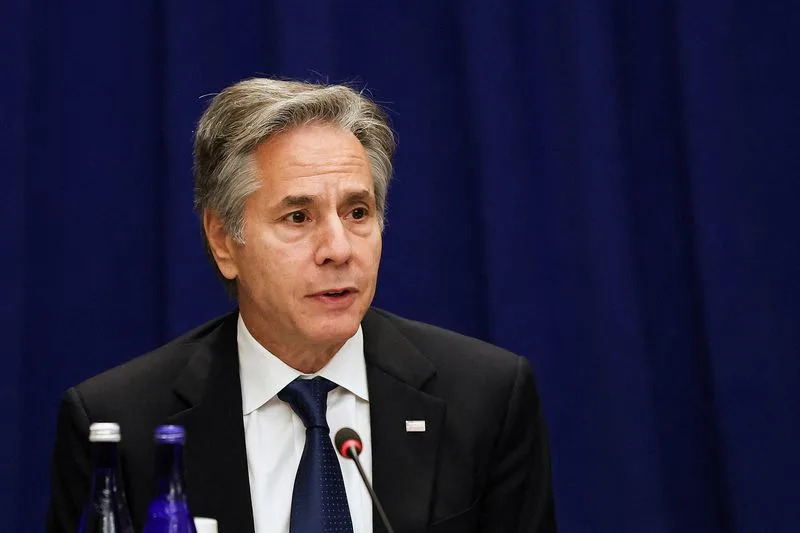
U.S. Secretary of State Antony J. Blinken at a ministerial meeting of the Foreign Ministry Channel for Global Health Security, in New York
WASHINGTON (Reuters) -Secretary of State Antony Blinken will represent the United States at summits with Asian leaders in Laos this week and expects to discuss human rights in Myanmar, China's "irresponsible" behavior in the South China Sea and Ukraine, the top U.S. diplomat for East Asia said on Tuesday.
Daniel Kritenbrink told reporters that President Joe Biden, whose vice president, Kamala Harris, is running against former President Donald Trump in the Nov. 5 U.S. presidential election, remained fully committed to the ASEAN region, even though he is not attending the leader-level meetings.
A State Department statement said Blinken would leave on Tuesday for the Laotian capital of Vientiane and stay there until Friday, attending the East Asia Summit and a U.S.-Association of Southeast Asian Nations summit.
Blinken was originally scheduled to accompany Biden on a subsequent visit to Berlin and the Angolan capital Luanda, but the White House announced that the president was postponing those trips to handle preparations for Hurricane Milton and relief efforts after Hurricane Helene. Blinken is now expected to return home after the Vientiane trip, State Department spokesperson Matthew Miller said.
Kritenbrink said he had no details to share about Blinken's plans for bilateral meetings in Vientiane, including any with China, but a number of China-related issues would come up, including its "escalatory and irresponsible steps designed to coerce and pressure many of the South China Sea claimants."
On China's support for Russia over Ukraine, he added: "Our concerns regarding China's strong support for the Russian defense industrial base, they remain, they are ongoing, and I would say they are growing."
Kritenbrink said Washington remained "deeply concerned" about plans by Myanmar's military government to hold elections, and that these should not be held until there was genuine peace and reconciliation in the country.
He said there has been "virtually zero progress" in efforts to press the junta to reduce violence, release political prisoners and engage with the democratic opposition.
"The secretary will continue to emphasize to partners in the region that we must keep up pressure on the regime," he said.
"We ... fear that premature elections would be neither representative nor inclusive, and perhaps ... would likely only generate more violence and prolong the ongoing crisis," he said.
(Reporting by David Brunnstrom, Michael Martina and Doina Chiacu; Editing by Jonathan Oatis, Mark Porter and Bill Berkrot)



